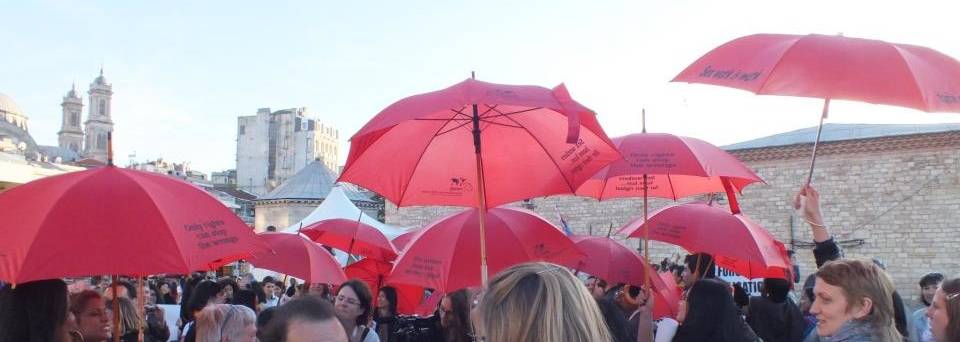STATEMENT Against Criminalizing Clients of Sex Workers
The European Parliament’s Committee on Gender Rights and Women’s Equality, FEMM, has approved a report that recommends criminalizing clients of sex workers as a way to “reduce prostitution and trafficking”. This recommendation will be up for a vote in the European Parliament on 27 February 2014. Sex workers are speaking out against it, and calling on allies in the women’s movement (and others) to support them and speak out against the criminalisation of their clients.
As feminist women’s funds, we write to show we support women’s rights and women’s agency to make choices about their lives. We believe that adult women (richer and poorer, documented and undocumented, educated and uneducated) can assess the livelihood opportunities available to them and choose to do sex work (or not). And we support them in that choice, and in their organizing for safer and decent living and working conditions.
Sex workers have taught us that criminalisation always works against the enjoyment of their human rights. It drives them underground, jeopardizing their safety and their access to health, education and housing. And it always hits those who are already marginalised – street sex workers, migrants, those from non-privileged ethnic or cultural groups – the most. Along the same lines, which clients are most likely to be “caught in the act” by the police and punished? Those approaching sex workers on the street or in other public places who are likely to belong to the same already marginalised groups, rather than those hiring the services of independent sex workers through the internet or from 5 stars hotels.
Consensual adult sex work is not trafficking. It is a choice people make, while trafficking is a human rights violation. Sex workers have unique access to the spaces where victims of trafficking for sexual exploitation are, and are extremely knowledgeable about the contexts and issues at stake. They can be and are allies in the fight against trafficking. Anti-trafficking initiatives that ignore what sex workers are saying about themselves – that they are not victims, but workers whose rights should be respected – miss this opportunity and end up being less effective.
To stop trafficking (not only for sexual but also for other labour exploitation more broadly), States must confront the criminal networks responsible for it and expose their links to corporations, security forces and public officers that grant them protection and benefit from their activities. Criminalising the clients of sex workers might work as a smoke screen but it will not serve this end. And it will have serious consequences not only for already marginalised sex workers and clients but also for victims of trafficking who will continue to suffer without States tackling those people who are responsible for, and benefiting from, their plight.
We support the right of sex workers to safe and decent conditions of work, without any form of criminalisation, and demand effective measures against all forms of trafficking that do not infringe the human rights of those engaged in consensual adult sex work (clients and sex workers alike).
Signed by:
- Astraea Foundation (International, USA based)
- Calala Fondo de Mujeres (Spain, Central America)
- FRIDA The Young Feminist Fund (International)
- Global Fund for Women (International, USA based)
- Mama Cash (International, Netherlands based)
- Slovak-Czech Women’s Fund (Slovakia, Czech Republic)
- Ukrainian Women’s Fund (Ukraine, Belarus, Moldova)
- Urgent Action Fund (International, USA based)
- Women’s Fund in Georgia (Georgia)
